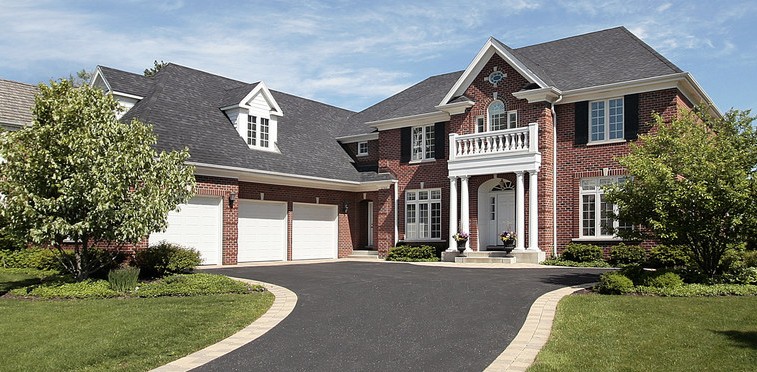FREQUENTLY ASKED QUESTIONS ABOUT REAL ESTATE
1.) Why should I hire a Real Estate Agent?
A Real Estate Agent is a helpful person to have around when making these important property transactions. The agent can act on your behalf, provide advice and guidance. Also, some of the information you can access online can be inaccurate or out of date; however, a real estate agent can provide current information.
In addition, many people would rather use an Agent due to the complexities of modern Real Estate transactions since they usually incorporate legal and financial attributes, which takes them well beyond more simple transactions, such as the sale of an automobile.
There are several advantages when using a real estate agent to sell your home, such as – your listing will be added to the Multiple Listing Service (MLS) so that large numbers of buyers will have access to the seller’s property. In addition, your real estate agent absorbs all of the cost of advertising and marketing, and the screening that will be done of potential buyers by Agents. The Agent will also handle the details of negotiation.
2.) What can PARAM SURI do for me as compared to the competition?
Param Suri guarantees that he will work to satisfy your every need and want when selling or purchasing a home. Keeping your needs in mind and giving you undivided attention is our goal.
For individuals looking to sell their house, Param Suri will help you fix up your house at zero cost to you! With no hassle and no time invested, you can raise the value of your home in minutes by calling PARAM SURI!
3.) What is a Broker?
A Broker is an agent who is authorized to open and run his/her agency. All real estate offices have one principal broker.
4.) What is Title Insurance?
Every purchaser of a property has the option of purchasing Title Insurance, most commonly from an organization called FCT. Title Insurance can be beneficial as it protects the lender and the buyer against any losses incurred from disputes over the title of a property.
5.) Why does the Title have to be cleared before I can get a mortgage?
When a lender makes a mortgage loan (other than a home equity loan), the lender typically requires a first lien position. This means there can be no other outstanding liens against the property that are superior to the new mortgage. Liens can result from home equity loans or lines of credit, child support judgments, divorce settlements, delinquent taxes, and special assessments. Most realtors, mortgage companies, title companies, and escrow companies will assist the seller and/or borrower in clearing title. The ultimate responsibility, however, lies with the sellers of the property who are warranting clear title to the buyers. It is important the buyers receive clear title from the sellers so there are no future claims against their property ownership rights.
6.) How long does it take to get a mortgage loan?
The number of days from application to closing can vary from just a few days to 45 or more days, depending on a number of factors. Some of the factors include: loan type, whether an appraisal is needed, and title clearance. Time delays also occur if outside sources or the borrowers do not promptly provide documents to the lender.
7.) What benefits do I receive from private mortgage insurance?
Prior to the existence of private mortgage insurance, individuals typically could not purchase a home unless they had a down payment of at least 20% of the purchase price. Private mortgage insurance benefits the mortgage lender directly by reducing the costs associated with borrower default. It also benefits consumers by lowering down payments, thereby allowing more people to achieve home ownership.
8.) What is my credit score and how is it calculated?
Your credit score is a one look number at your overall credit rating. The calculation formula for this score is somewhat of a mystery and a secret held by the credit reporting bureaus. We do know that the major variables to derive this score are: public records, late payments, how recent and the number of late payments, amount of credit open, balances on credit open compared to available credit, and inquiries into your credit history.
9.) As a Seller, do I have to sell to the person with the highest offer?
No. If you prefer a lower-priced offer, perhaps with a better-qualified buyer and/or more attractive terms, you can accept that offer instead. Or you can give counteroffers to one or more of the buyers.
10.) As a Seller, How should I price my home?
Your Real Estate Agent can help you take into account the prevailing state of the real estate market and especially local market conditions. Since the market is constantly fluctuating, it is extremely important to determine your list price based on the most recent comparable sales in your neighborhood.
11.) As a Seller, What is the best time to put my house on the market?
Along with economic factors such as supply and demand, the time of year you choose to sell can impact both the length of time it takes to sell your home and its ultimate selling price.
Typically, the real estate market picks up around February, continues strong through late May and June, and tapers off during July and August. The summer is usually the busiest time for moving since school is out and buyers may be looking to get their children in school before the new school year. September through November generally marks a rally not as strong as late winter and spring, followed by a slowdown from Thanksgiving through and beyond the Christmas and New Year holiday period.
12.) What is the Home Buyers Plan (HBP)? How does it work?
The HBP is a program that allows an individual to withdraw up to $25,000/year from their RRSPs in order to buy or build a qualifying home for themselves or a related person with disability.
In order to qualify for this program, you must be considered a first-time home buyer. You are considered a first-time home buyer if in a 4 year period, you or your spouse/common-law partner did not live in a home that either of you owned. So, if you are not considered a first time buyer now, you may be considered one later, once the period has expired. Also, you must have a valid Agreement of Purchase and Sale to buy or build a qualifying home for yourself or for a related person with a disability. Also, you must intend to live in the home as your first place of residence.
When withdrawing your funds from your RRSPs under the HBP, fill out Form T1036, Home Buyers’ Plan (HBP) Request to Withdraw Funds from an RRSP. Also, it is to be noted that you can withdraw a single amount or make a series of withdrawals in the same calendar year.
However, you eventually have to repay the funds you withdrew from your RRSPs under the HBP. Your first repayment starts the second year after the year you withdrew funds from your RRSPs for your HBP. Generally, you have up to 15 years to repay to your RRSP(s) the amounts you withdrew from them under the HBP.
If you do not make the annual repayment to your RRSP(s) or PRPP(s), you have to include it as RRSP income on line 129 of your income tax return. The amount you include on line 129 is the minimum amount you have to repay as shown on your Home Buyers’ Plan (HBP) Statement of Account. Your HBP balance will be reduced accordingly.
Advantages:
- Gives you the ability to draw from some of your existing resources to help accumulate the 20 % down payment needed to avoid having to pay default insurance premiums.
- Also, your RRSP contribution will count as a tax deduction for the year.
Questions to Ask Yourself:
- Will you repay the requirement amount each year?
- Is it the right time to cash out your RRSP (i.e., this depends on the investments and rate of return you are getting on your current investment)?
- Is it worth forgoing the future tax sheltered growth potential of your RRSP in favour of reducing the mortgage amount (including default insurance premiums, total interest costs, etc.)




